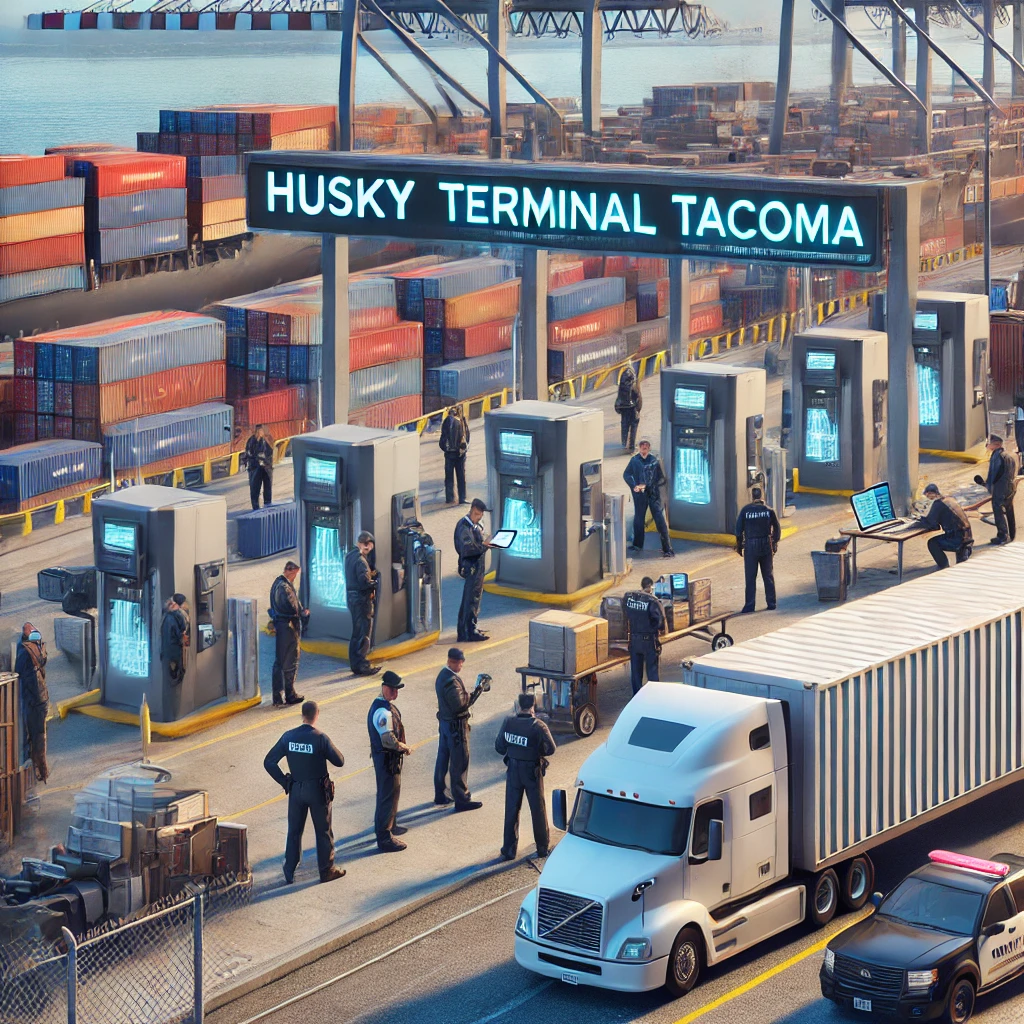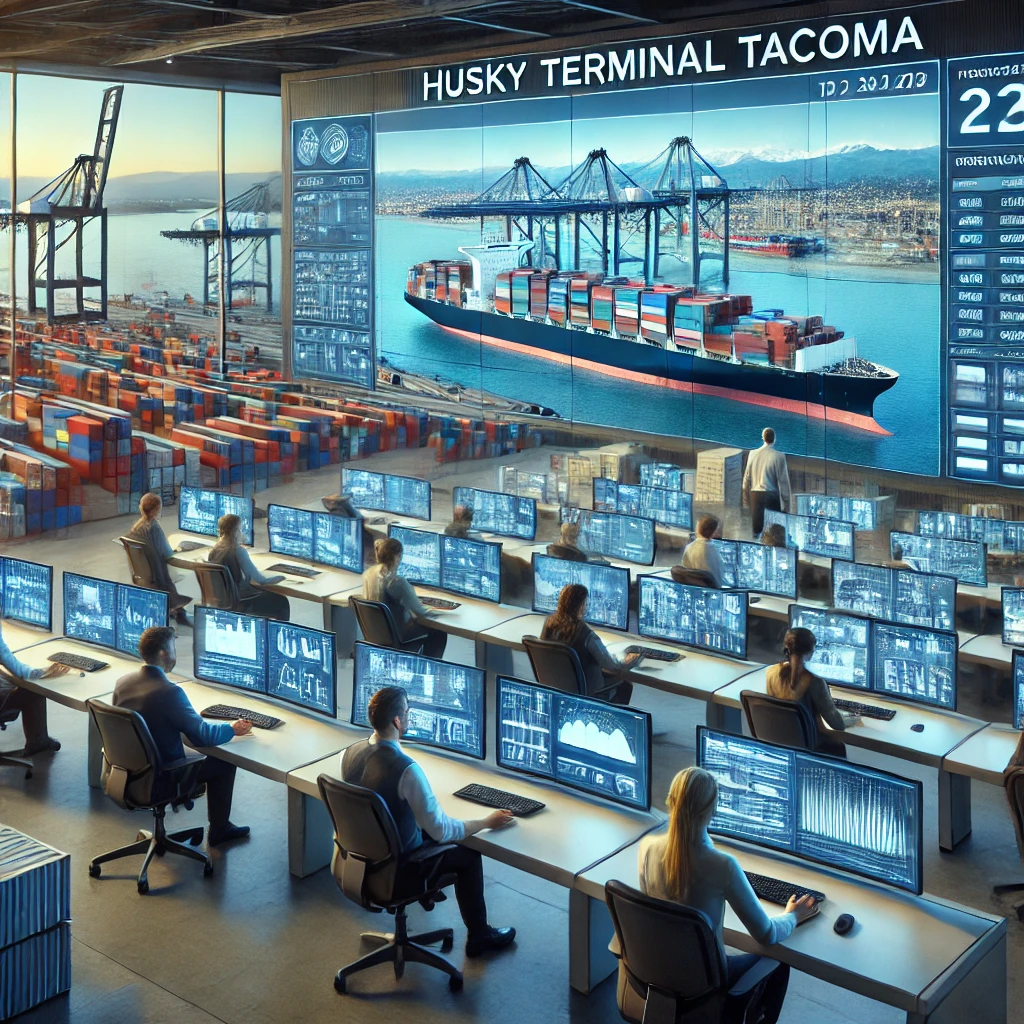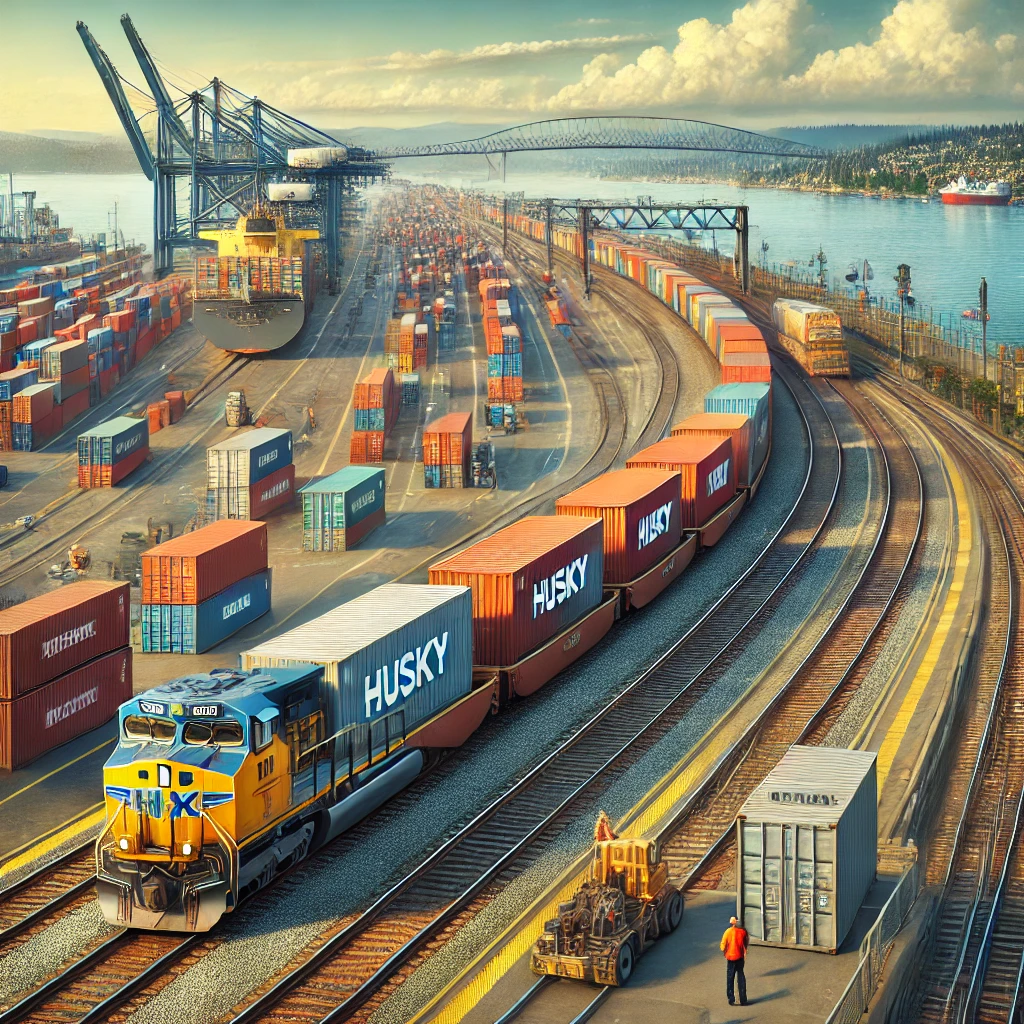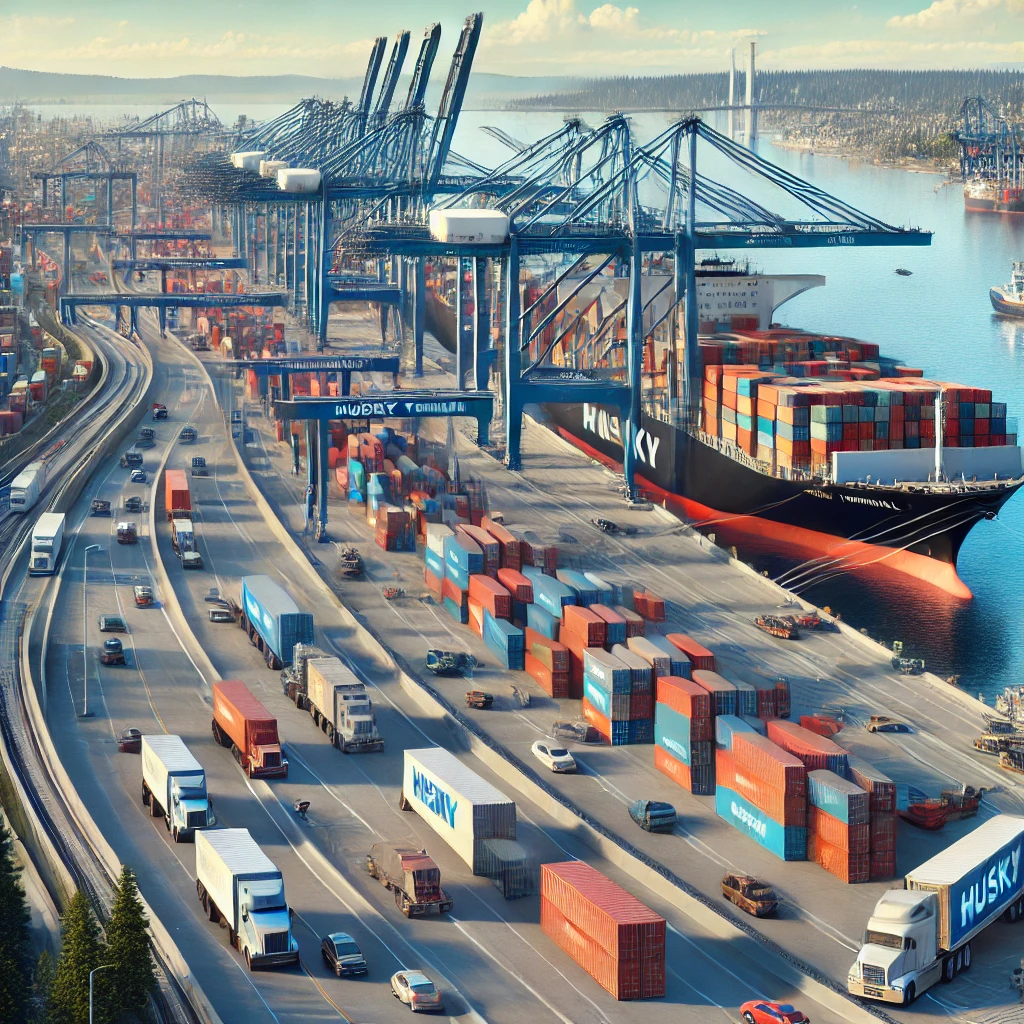Breaking Down Husky Terminal Tacoma

Key Features of Husky Terminal Tacoma
- Strategic Location
- Positioned at the Port of Tacoma, part of the larger Northwest Seaport Alliance (NWSA).
- Offers direct access to transpacific shipping lanes, making it a key player in U.S.-Asia trade.
- Proximity to Seattle, major rail lines, and interstate highways enhances logistics efficiency.
- High-Tech Terminal Operations
- Features modernized container handling equipment for efficient cargo movement.
- Equipped with automated gantry cranes and advanced cargo tracking systems.
- Supports real-time shipment monitoring through integrated logistics platforms.
- Rail and Intermodal Connectivity
- Directly connected to major rail networks such as BNSF Railway and Union Pacific.
- Provides on-dock rail services, reducing truck congestion and streamlining cargo movement.
- Supports seamless intermodal shipping, ensuring faster transit times for goods.
- Sustainability and Environmental Initiatives
- Implements green shipping practices to reduce carbon emissions.
- Uses shore power technology, allowing docked vessels to connect to the local power grid instead of using diesel engines.
- Committed to eco-friendly cargo handling through electric and hybrid terminal equipment.
Husky Terminal Tacoma: Cargo and Shipping Capabilities
- Specializes in containerized cargo, including consumer goods, electronics, and automotive parts.
- Handles reefer containers (refrigerated cargo) for perishable goods.
- Offers specialized cargo handling for oversized and project-based shipments.
- Supports both full container load (FCL) and less-than-container load (LCL) shipments.

Economic Impact of Husky Terminal Tacoma
- Major Trade Hub
- Facilitates trade with key markets, especially China, Japan, and South Korea.
- Supports billions of dollars in annual trade volume.
- Job Creation and Economic Growth
- Directly employs thousands of workers in Tacoma and surrounding areas.
- Drives growth in sectors such as logistics, trucking, and warehousing.
- Business Opportunities
- Essential for importers, exporters, freight forwarders, and third-party logistics (3PL) providers.
- Attracts investments in warehouse storage, cold chain logistics, and cargo consolidation.
Husky Terminal Facilities and Infrastructure
Facility Feature | Description |
Deepwater Berths | Accommodates large container ships, including mega-vessels. |
Automated Cranes | Improves efficiency in loading and unloading operations. |
On-Dock Rail Access | Reduces truck traffic and speeds up intermodal connections. |
Advanced Security | Equipped with 24/7 surveillance and cargo scanning systems. |

Advantages of Using Husky Terminal Tacoma
- Faster Cargo Handling
- Streamlined operations ensure quick turnaround times for vessels and cargo.
- Efficient berth management reduces port congestion and delays.
- Cost-Effective Freight Solutions
- Competitive pricing for container handling and storage.
- Reduces drayage costs through direct rail and highway access.
- Reliability in Supply Chain Management
- Integrated digital tracking provides real-time shipment visibility.
- Works with major shipping lines to ensure consistent service schedules.
Challenges and Considerations
- Port Congestion
- High traffic volumes can lead to occasional delays.
- Solution: Utilize digital scheduling and off-peak trucking hours.
- Environmental Regulations
- Compliance with strict emissions and sustainability requirements.
- Solution: Partner with eco-friendly logistics providers.
- Labor Strikes and Workforce Issues
- Potential disruptions due to labor negotiations in the shipping industry.
- Solution: Stay informed on labor agreements and plan alternative routes when needed.

Best Practices for Importers and Exporters Using Husky Terminal Tacoma
- Plan Shipments in Advance
- Secure cargo space early to avoid peak-season delays.
- Use digital tracking platforms for improved shipment visibility.
- Leverage Intermodal Transport
- Take advantage of the terminal’s rail and truck network to optimize shipping routes.
- Coordinate with freight forwarders for seamless multimodal transportation.
- Stay Updated on Port Regulations
- Monitor changes in customs clearance procedures, security measures, and sustainability policies.
Conclusion
Husky Terminal Tacoma is a key logistics hub that enhances supply chain efficiency for businesses involved in global trade. With its strategic location, cutting-edge infrastructure, and commitment to sustainability, the terminal remains a top choice for shippers, freight forwarders, and logistics professionals. By leveraging its advanced cargo handling capabilities and intermodal connectivity, businesses can streamline their import/export operations and reduce shipping costs effectively.
